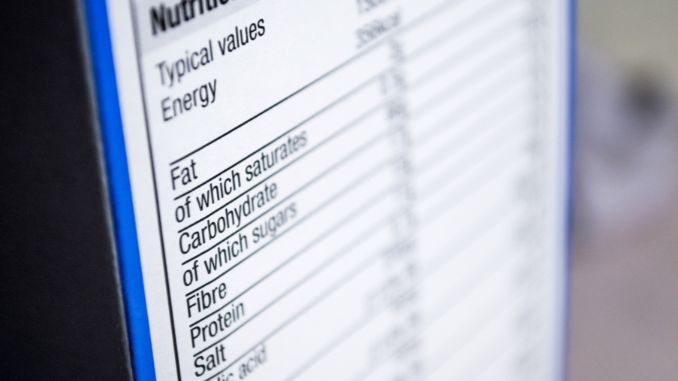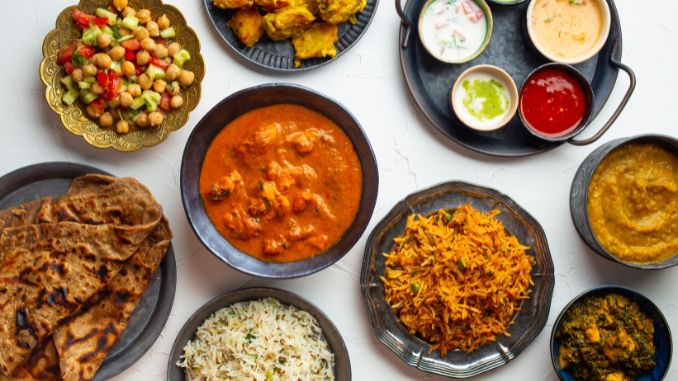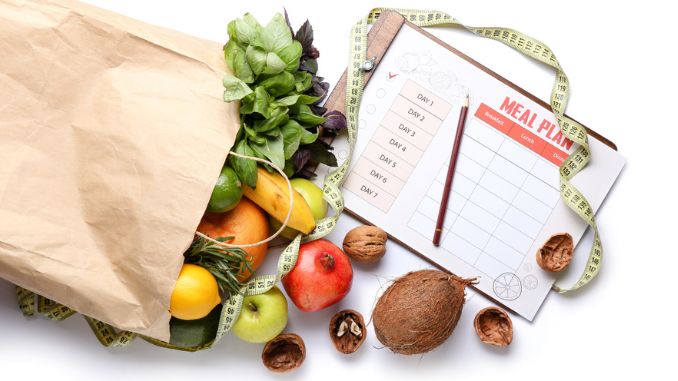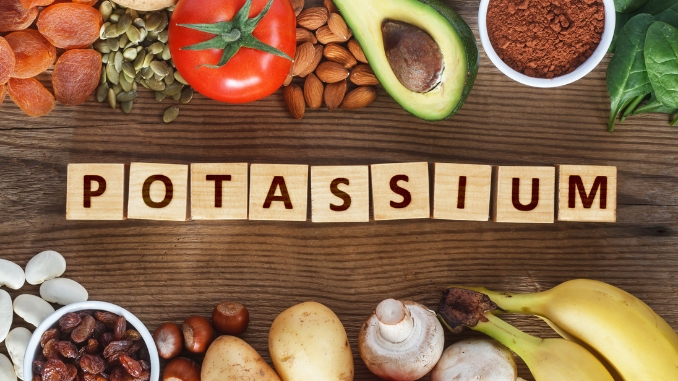Amidst the fast-paced modern life, balancing work, family, and personal time can feel like a chaotic dance. Enter meal planning—a trusted ally in the kitchen, crafting not just meals but moments of joy and efficiency. It's a carefully curated recipe for success, blending ingredients, schedules, and nutritional wisdom. Read more to learn about the Importance of Meal Planning.
Moreover, this journey isn't just about cooking; it's about infusing routine with warmth, turning every meal into a celebration of health and happiness. Join us as we present the importance of meal planning, highlighting its vitality, sprinkled with nutritional goodness, and serving up tips for stress-free, energizing meals to power your day.
What Is Meal Planning?
Meal planning is the process of organizing and preparing healthy foods in advance. It also involves making thoughtful decisions about healthy eating and how to prepare a healthy meal. The primary objective of meal planning is to streamline the cooking and healthy eating process, leading to several benefits. Overall, it is a practical and proactive approach to maintaining a healthy and organized eating routine.
Key components of meal planning include:
Recipe Selection
Creating A Menu
Grocery Shopping
Meal Prep And Cooking
Batch Cooking
Portion Control
Importance Of Meal Planning
Meal planning offers many benefits that indeed contribute to overall well-being and efficiency in daily life.
Here are some compelling benefits and importance of meal planning:
1. Time Savings
Meal planning streamlines cooking by preparing ingredients in advance, reducing daily meal prep time. Tasks like pre-chopping vegetables or marinating proteins contribute to a seamless kitchen execution. Time-saving is indeed one of the Importance of Meal Planning.
Beyond time savings, it also benefits mental well-being by eliminating the stress of daily meal decisions. Knowing what to cook in advance fosters an organized and less stressful culinary routine, also making cooking efficient and enjoyable while promoting calm and organization.
2. Cost Savings

Meal planning is a smart grocery shopping superpower! Deciding meals ahead transforms you into a strategic shopper, making your trips more efficient. You can save money by curbing impulse purchases and minimizing food waste since you buy what's needed.
An added bonus: with your diet quality meals set, you'll depend less on quick takeout meals or dining out in fast food chains. With home food preparation, you can certainly save time and money while enjoying your budget-friendly and healthy diet meals. It's a win-win!
Health Benefits Of Meal Planning

Meal planning is your guide to a healthy diet, ensuring delicious, nutrient-packed meals. It sets the stage for diverse and well-rounded nutrition while playing a superhero role in portion control for a healthy weight and also an overall well-being. With the importance of meal planning, you're crafting a menu that's a perfect harmony of healthy foods and flavors!

Meal planning is your key to structured eating habits. End the last-minute scramble! Knowing what you'll cook ahead saves time and makes preparation organized and stress-free. It's the recipe for consistency, reducing uncertainty for smooth, calm days. With meal planning, you're executing a harmony of organization and peace, and this is where Importance of Meal Planning enters.
2. Health Goals

Meal planning is your ally for health and fitness goals! It also aligns dietary choices with aspirations, serving as a personalized roadmap to a healthier you. But there's more – meal planning is also your guide to mindful eating. Thoughtfully planning meals indeed fosters a deeper connection with what you eat, shaping a path to a more mindful and fulfilling eating experience.
3. Environmental Impact

Meal planning is not just about delicious meals; it's also a powerful ally in the fight against food waste! In meal preparation, you're not only deciding what to cook but also using your ingredients with purpose. This thoughtful approach indeed ensures that nothing goes to waste.
By reducing food waste, meal planning becomes a champion of sustainability. It's like giving every ingredient in your kitchen a second life, also contributing to a healthier place. So, with meal planning, you're not just cooking; you're indeed positively impacting the environment, one planned meal at a time.
4. Culinary Variety

Meal planning is your passport to a culinary adventure, enhancing your cooking skills! It's not just about meal prep; it's about intentionally exploring new flavors, recipes, and cuisines. With meal planning, every week becomes a journey of exciting tastes and food variety.
But that's not all – it's also your canvas for creative cooking, which improves your cooking skills. Furthermore, think of it as your opportunity to don the chef's hat and infuse creativity into everyday meals. Meal planning indeed turns your kitchen into a playground where you can experiment with ingredients, techniques, and flavors, transforming the ordinary into extraordinary.
5. Family And Social Benefits

Meal planning is indeed a team effort that brings people together! Sharing responsibilities with family or housemates turns mealtime into a shared experience. The benefits indeed extend to enhanced socializing, creating an inclusive and enjoyable environment for connections and memories around the table.
6. Efficient Work-Life Integration

Meal planning is the ultimate time-management guru in the kitchen! Especially for busy schedules, it's like a superhero cape that helps you juggle work, life, and health.
Moreover, planning meals streamlines your time spent on food preparation, giving you more control over your schedule and freeing up time that would otherwise be spent to grocery shopping and deciding what to cook. With meal planning, you're not just managing time but also creating space for a healthier work-life balance. So, say hello to less kitchen stress and more time for the things that truly matter in your life!
Which Meal Plan Is The Best?
The "best" meal plan is subjective and depends on individual goals, preferences, dietary needs, and also lifestyle. There is no one-size-fits-all answer, as what works well for one person may not be suitable for another.
Here are several popular types of meal plans towards maintaining body weight status, each with its own advantages:
1. Balanced Diet
A balanced meal plan includes a nutritious diet with a variety of carbohydrates, proteins, fats, and various fruits and also vegetables. It's a versatile approach suitable for most people, and also focusing on overall health and nutrition.
This plan emphasizes whole foods, lean proteins, healthy fats (especially olive oil), and also a variety of fruits and vegetables. It is indeed known for its heart-healthy benefits and focuses on plant-based foods.
3. Ketogenic Diet
This diet is low in carbohydrates, high in fats, and also moderate in protein. It aims to shift the body into a ketosis state, where it burns fat for energy. This can effectively lose weight, but it may not suit everyone.
4.Paleolithic (Paleo) Diet
The Paleo diet focuses on whole foods—available during the Paleolithic era, such as lean meats, fish, fruits, vegetables, nuts, and also seeds. It avoids processed foods, grains, and dairy.
5. Intermittent Fasting
Rather than specifying particular foods, intermittent fasting focuses on when you eat. It also involves cycling between times of eating and fasting. Common methods include the 16/8 technique (you will not eat for 16 hours and eat during an 8-hour window).
6. Vegetarian Or Vegan Diet
These diets exclude or limit products from animals. A vegetarian diet may also contain dairy and eggs, while a vegan diet avoids all products from animals. These plans can be rich in plant-based foods and offer benefits like improved heart health.
Take Note: When choosing a meal plan, consider your individual health goals, preferences, and also any dietary restrictions. Consult with a healthcare professional to design a plan for your specific needs and lifestyle.
Nevertheless, here is a general guide to preparing your meal plan.
Tips For A Purposeful Meal Plan
Creating a meal plan doesn't have to be daunting! Here's a step-by-step guide to help you:
1. Set Your Goals

Start by clarifying your meal planning objectives. For example, if you aim to save time, your goal could be efficient and quick meal preparation. If you're also focusing on healthier eating, your goal might be to incorporate more whole foods into your diet. Knowing your objectives will guide your meal planning decisions.
2. Choose Planning Duration
Decide how long you want your meal plan to cover. A common and manageable duration is a week. This also allows you to plan each day and adjust based on your weekly schedule. For instance, plan for simpler meals on busier days and more elaborate ones when you have more time.
3. Plan Simple Meals
Select easy and quick recipes that align with your goals. For time-saving, consider one-pan dishes like sheet pan chicken with vegetables. For healthier choices, opt for recipes with lean proteins, whole grains, and plenty of vegetables. A simple example could be a grilled chicken salad mixed with greens and also a homemade vinaigrette.
4. Create A Grocery List
Based on your meal plan, create a detailed grocery list. Organize it by food categories to make your shopping trip efficient. For instance, if your meal plan includes a stir-fry and a salad, group the vegetables you'll need. This way, you can navigate the store more quickly, reducing the chances of forgetting items. With a grocery list, you can save energy.
5. Execute And Adjust
Follow your meal plan during the designated period. Execute it as closely as possible, but be flexible. Life happens, and you also need to make adjustments. For example, if unexpected plans arise, swap a more time-consuming recipe for a quick and easy one. After the planning period, evaluate what worked well and what could be improved, making adjustments for the next round.
Meal Planning Tools And Resources

Fortunately, several tools and resources are available to support your meal planning journey. Take advantage of technology to simplify the process and enhance your organization.
Here are a few of these you can explore:
Meal planning Apps
Various meal planning apps can indeed help you create and manage your meal plans. These apps often have features like recipe databases, shopping lists, and even the ability to sync with your calendar.
Online Recipe Databases
Some websites offer a vast collection of recipes you can search and save for future reference. These platforms often allow you to filter recipes based on dietary preferences, cooking time, and ingredients, making it easier to find suitable options.
Cookbooks
Traditional cookbooks are still a valuable resource for meal planning. Invest in a few cookbooks that align with your dietary preferences and offer a wide range of recipes. Having physical cookbooks on hand can be especially helpful when you want to disconnect from screens and explore new culinary adventures.
Community Support
Joining online communities or social media groups focused on meal planning can provide you with support, inspiration, and new ideas. These communities often share recipes, tips, and success stories, creating a sense of camaraderie and motivation.
By exploring these tools and resources, you can find the ones that satisfactorily suit your needs and enhance your meal planning experience. Experiment with different options and embrace the ones that simplify your journey and make meal planning an enjoyable part of your routine.
Key Considerations For Meal Planning
Creating a meal plan involves considering several factors to ensure it aligns with your goals, preferences, and lifestyle.
Here are key considerations:
1. Dietary Goals
Clearly outline your health and dietary goals to provide a roadmap for your meal plan. For example, if your goal is weight management, specify whether you aim to lose, maintain, or gain weight. If you're focusing on energy, consider whether you want sustained energy throughout the day or specific nutrients to support an active lifestyle.
2. Preferences And Restrictions
Take a thorough inventory of your food preferences, allergies, and dietary restrictions. This ensures that your meal plan is not only healthy but also enjoyable. For instance, if you prefer plant-based meals or gluten restrictions, tailor your plan accordingly.
3. Meal Frequency
Determine the frequency of meals and snacks based on your daily routine, including work hours, exercise, and personal preferences. Consider whether you prefer three larger meals or numerous smaller meals and snacks throughout the day to maintain energy levels.
4. Nutrient Balance

Strive for a well-rounded mix of macronutrients (carbohydrates, proteins, and fats) and essential micronutrients (vitamins and minerals). This promotes overall health and provides the necessary fuel for your body's functions.
5. Portion Sizes
Be attentive to portion sizes to support your health goals. Consider factors like activity level, metabolism, and specific dietary requirements. Understanding appropriate portion sizes ensures that you're meeting nutritional needs without overeating.
6. Variety Of Foods
Adopt a diverse range of foods to ensure you receive a wide array of nutrients. Include an assortment of fruits, vegetables, lean proteins, whole grains, and healthy fats. This enhances nutritional intake and keeps your meals interesting and satisfying.
Here's a guide on what to include in a balanced meal plan:
Cooking Time And Skill Level
Align your meal choices with your cooking skills and available time. If you're short on time, opt for quick and easy recipes. Alternatively, if you enjoy spending time in the kitchen, experiment with more intricate dishes that match your skill level.
Budget

Consider your budget when planning meals. Opt for cost-effective ingredients and explore recipes that utilize affordable staples. This ensures that your meal plan is nutritionally sound and financially sustainable.
Conclusion
Understanding the importance of meal planning goes beyond cooking and eating—it's a strategic tool that harmonizes nourishment with daily life. It's about more than just food; it's a deliberate approach bringing diverse benefits. From saving time and money to enhancing overall well-being, meal planning adapts to various lifestyles and goals.
It guides balanced, nutritious meals, nurturing physical health, and mental and emotional wellness. By easing stress and boosting efficiency, meal planning turns daily routines into moments of joy, celebrating health and happiness with every meal. Embracing the importance of meal planning is investing in a healthier, more organized, fulfilling life.
The is a terrific way to lose weight but the diet can be difficult to follow. Many are failing on the diet because they eat the wrong foods or don’t have a plan for a specific meal and make bad food decisions when hungry. We created our new Master Guide to Keto to simplify the diet and increase your chances for success.








